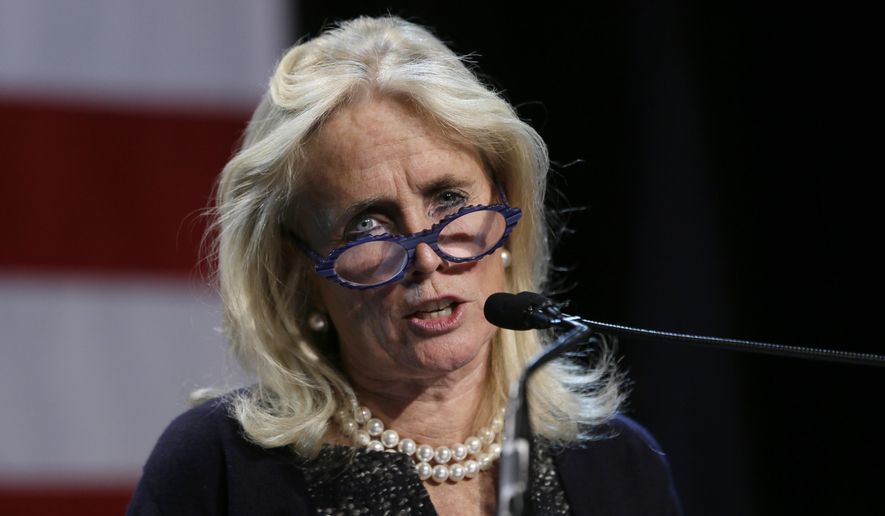Rep. Debbie Dingell told colleagues Thursday her father had a mental illness and a gun — and said the combination made her fear for her life when she was a child.
The Michigan Democrat made the revelation on the floor of the House, urging lawmakers to vote for a bill to block firearms purchases until FBI background checks are fully completed and to vote against a Republican amendment to allow abuse victims to get firearms under the old rules.
She said her father was a gun owner, and mentally ill, and it scarred her.
“I had to hide in that closet with my siblings wondering if we would live or die,” she said. “He shouldn’t have had a gun.”
Under current rules, the FBI has three days to complete the background check. If all questions can’t be resolved in time, yet the FBI can’t legally deny the purchase, the firearm must be allowed to be sold.
House Democrats have crafted a bill that would extend the time the FBI has to complete the checks to 10 days, with another 10-day extension allowed.
Supporters of the bill point to the 2015 shooting at a church in Charleston, South Carolina, as the evidence of what can happen under the current system.
Dylann Roof was able to buy a gun despite a criminal record that should have prevented him from making the purchase. The FBI blamed messy paperwork for preventing officials from spotting the drug conviction on his record.
Without that, they were unable to flag the sale as illegal, and the purchase went through.
Roof has been convicted of killing nine people and wounding three others in the attack.
Criminal convictions are just one of a dozen categories that can block purchases. Others include mental health problems, domestic violence accusations, or being an illegal immigrant.
Opponents say lengthening the three-day waiting period cuts into gun buyers’ Second Amendment rights and could leave some people without needed protection.
Republicans offered an amendment to let people who fear domestic abuse get their firearms within the three-day period.
That’s when Mrs. Dingell took to the floor to tell her story.
She said her mother responded to her father’s abuse by buying her own gun, to match her husband.
“And then all of us were scared of her gun and my father’s gun,” she said.
Her speech rallied Democrats, who defeated the GOP’s domestic violence carve-out on a near-party line vote.
The overall bill then passed, again on a near-party line vote, 228-198.
“America will never forget what happened at Mother Emanuel AME Church in Charleston,” said Gabrielle Giffords, a former member of Congress who was shot while hosting an outdoor town hall in 2011. “Every family in America has the right to worship, work, study and play without the fear of gun violence. If we’re serious about building a safer America, we have to be serious about advancing solutions.”
The “Charleston loophole” bill, as Democrats called it, was the second gun control measure to pass the House this week.
On Wednesday the chamber approved a bill to expand background checks to nearly all firearms sales and transfers.
Under current law, only sales by federally licensed dealers require a check of the FBI’s system. Private sales or gifts, whether through classified ads or at private gun shows, aren’t covered — creating what Democrats have called the “gun show loophole.”
• Stephen Dinan can be reached at sdinan@washingtontimes.com.




Please read our comment policy before commenting.